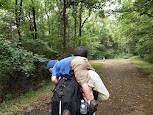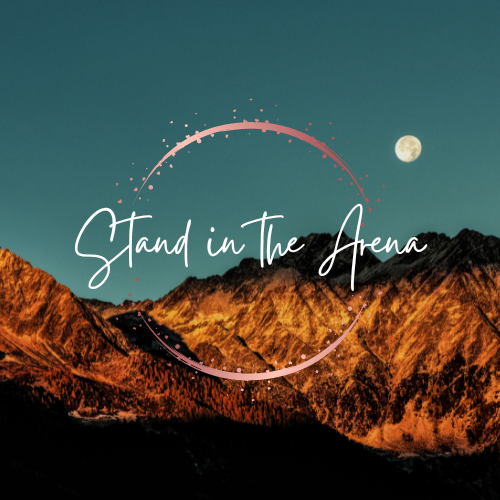Habitual Ruts
 |
Overcome rut
obstacles. |
We tend to associate ruts with a negative connotation...that's not necessarily accurate. Much like the drive to familiar places like work/church/school/groceries, we routinely go on "autopilot." Similarly, our ability to walk through our home in the dark, neural paths that become ruts allow us to be more efficient. If we had to think through each task we do, every single time, we'd turn into basket cases. As you're thinking through the systems that you employ in your life...consider what we can put onto the habitual ruts to create progress.
 |
Ruts can be made
to be useful. |
Some parts of our life are more conducive to the benefits of habitual rut. When we think about things like budgeting...we can do things like automatic transfers, automatic payroll investing, and other things that become the "fire and forget" automation. Similarly, with our calendar or to-do list we can leverage technology to make our ruts deeper. Proactively adding a calendar check-in/family meeting allows us to make that touch point weekly as a habit...not when the proverbial dumpster is burning down. Our habitual ruts allow us to get to the Covey Q2 (not urgent, but important) tasks and slide from response to prevention. This intentional, proactive work means that we're less likely to have a continuing series of "crazy-cycle" encounters by getting out in front of them and avoiding the root causes.
 |
| Start early. |
We were at the Guernsey, WY Oregon Trail ruts a while back and it's a powerful place to stand and look at the physical ruts. Those repetitive wagon wheels rolling over the same piece of ground...150 years ago are a reminder that ruts can help us build upon those before us...and do better. Instead of wandering aimlessly or dangerously across the wild west country, the trail and corresponding ruts allowed subsequent travelers to more easily, quickly, efficiently, effectively, and safely navigate a wild place. Those ruts, at the beginning, were a few small tracks through the grass...now, sort of, those "ruts" have turned into a railroad and interstate highway system that has transformed our world.
 |
Ruts (and water)
can do amazing
things. |
As you unpack some of our family roles, can we build some "how-to parent" ruts by volunteering to babysit, coach a Little League team, or help out with kid care at church? Chances are, if we're intentional and proactive, we can likely avoid the bumps on the horizon. When we're looking to make a career change, we can likely find an internship/volunteer opportunity that gives us a few small ruts to figure out if we want to invest the time/energy/resources to build an entire "road system." For example, during grad school, we had a classmate who had finished her dental degree...only to realize she didn't like doing dental work. Long story short, she was transitioning to administration stuff (not in health care). Had she perhaps made a little rut before doubling down on a doctorate degree...life might've been smoother.
 |
Go see the
physical ruts. |
In his book
Atomic Habits, James Clear lays out the idea of habits as systems. By taking the small habits and "stacking" them, we can create a more useful system/network that enables us to do some great things. When we talk about a system, those habit ruts can be powerful. Let's use an example of physical fitness - some of the ruts might include putting our water bottle and shoes by the door to get up first thing and take a walk/run. Another rut might be getting into the habit of every time a commercial comes on or a streaming episode ends, you do 10/20/200 (you pick) pushups and put the TV on mute. Similarly, we can make a habitual rut in healthy eating by not going to the grocery store hungry, shopping with a list, staying on the outside loop (not in the aisles), and getting veggies instead of ice cream when you're not in a moment of weakness.
 |
They can lead to
beautiful places. |
Another benefit of habit ruts is that they create a certain momentum that leads us closer to who we say we want to become. For example, with faith, doing prayers at dinner, talking about the Bible, going to church, and so forth creates a rut that then makes us a faithful person. Getting out and doing adventure with kids when it is cold, they're tired, and it's generally a pain in the butt, eventually create adventurous people who do adventurous things. The cool thing about the rut is that the habit of, say, outdoor adventure, is that we'll likely have our kids grow up to be a next generation of adventurous parents who raise adventure kids, who become adventurous parents...and so forth. The small ruts you start now can compound and cascade decades into the future.
 |
Get a carry if you
need it. |
Part of the idea of ruts is that we can use them to look forward to where we're going...but also backwards to where we've been. This can be particularly important and empowering when you're in a season of struggle. When you look at the rut/paths/people who came before you...and think about the repetitive nature of ruts necessary to be in place to get you to where you are often helps to right-size our perception of the struggle. Think back, say 10 generations...you had 2 parents, who each had 2 parents (up to 4), who each had 2 parents...when you get to 10 generations...we had to have had 2,048 people all "survive" or thrive to make it possible for us to show up. Looking back down those ruts can help us remember who we are (our values, heritage, and so forth). They can help us overcome the fears, frustrations, and struggles we're facing.
 |
Sometimes they
split different
ways. |
As we broaden out with ruts...we can also have them be negative. If we have a habitual rut of coming home, kicking off our shoes, turning on the TV, and becoming a couch potato...we have to work to "drive" out of that rut. The first part of doing so is noticing we're in a rut...and the rut is on a trail that will take us where we don't want to go. It's important every so often to spend some introspective time evaluating where your current trails are taking you (and your family). If we aren't tickled with where our small habits are going...we can then take actions to create new habits. For example, if you spend too much money...long enough, we call it bankruptcy. Instead, we can look at what causes us to spend money (e.g. I always stop for coffee when I drive by the ABC store). In unpacking it (highly recommend you read
Atomic Habits for more details), perhaps we take a different route (rut) to work to break our trigger/catalyst.
 |
Create some
new ruts. |
Lastly, as we depart our discussion on habit ruts, it's important to remember that when we're in a rut, the days tend to blur together. Get up, go to work, go to sleep - repeat. The days become a gray oneness. Instead, by injecting some novelty into our lives (trying something new), we can distort our perception of time. When we do a "honey do" weekend, it seems pretty seamless with the rest of our week. Instead, if we do something new like a long weekend trip, staycation, or other novelty, when we get back to life/work on Monday, it feels like we've been gone a month. In a perfect world, you create a habitual rut that adds novelty to your life as the status quo. This doesn't have to be particularly costly or even take a ton of time - go to the concert in the park, have a picnic over lunch, go stargazing...the idea is to inject novelty intentionally and regularly.
With you in the arena, from ours to yours...Happy Trails!
Call to Action:
- Pick out a couple of "bad" habits and a couple of good habits that point to where you want to go. Now, this week, take a few small actions to minimize/delete a bad habit or create the beginnings of a rut for a good one.
- 1 - ___________________
- 2 - ___________________
- 3 - ___________________
- Discussion: Consider what you/your family could/would/should (level of commitment) and start/stop/sustain (action) in terms of recognizing ruts and getting into/out of ones in your life.
Further Reading, Motivation, and References:
- James Clear Discussion














No comments:
Post a Comment